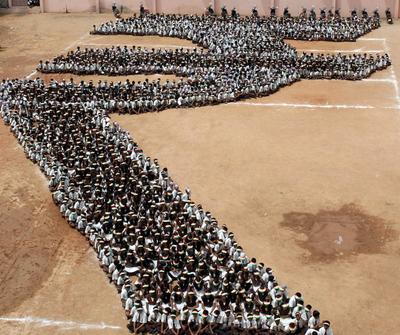In 2009-10, the growth rate was 7.2 per cent and it appears likely to be over 8 per cent in 2010-11.
As Govinda Rao argues in this week’s lead essay India’s impressive economic performance shows the strength of Indian economy. India escaped the global financial contagion as the Indian banking sector was not exposed to sub-prime lending and risky assets. But India’s continued good performance also demonstrates its domestic economic resilience, with growth fuelled by the high rates of domestic savings and investment.
Rajiv Kumar writes this week that last year was also one of highs and lows for India, symbolic of the terrible choices that India’s leaders now confront in defining the country’s destiny in the decades ahead.
India has taken its place within the councils of the world. Since November 2008, it has sat at the G20 summit. In the last six months the heads of government of all five UN Security Council members have visited Delhi; India has hosted the prime ministers of the United Kingdom and China and the Presidents of the United States, France and Russia. Most countries, including Japan and Germany but not yet China, acknowledge India’s claim to permanent membership of the Security Council. The rush to pay tribute to New Delhi is palpable. India has arrived, so it seems, on the centre of the global stage.
But despite India’s strong economy and its moment in the global sun, most Indians will remember 2010 as a year of scams, scandals, corruption and national shame that threatened ‘not only the country’s brand equity but its economic prospects as well’. The sordid record included the corrupt mess of the Commonwealth games; a brazen real estate scam (the Adarsh housing society case) in Mumbai; and to top it all off the most audacious, gigantic, ‘in-your-face’ flouting of all governance norms and proprieties in the case of the allocation of 2G spectrum channels. The under belly of Indian political corruption was exposed for all to see through publication of the Radia tapes that revealed, as Kumar says, ‘the depth of the rot that has set in to India’s administrative machinery’.
All this took place on the watch of Prime Minister Singh, whose personal honesty and integrity are beyond reproach, but that in no way qualifies the creeping systemic disease of administrative corruption that eats away at the fabric of Indian society and is a dead weight on India’s economic promise.
Kumar sees hope on two things that the reforms have delivered already: the now entrenched freedoms of a vigorously open press that have put the searchlight on venal politics and provides more and more effective monitoring and system accountability in the public interest; and the dynamism and vigour of India’s entrepreneurial class and the corporate sector with its vast army of professionals in the new middle classes. Entrepreneurial energy was unleashed with the reforms in the early nineties and drives India’s economic performance in spite of the burdens of administrative corruption.
Economic reform is far from done. Rao urges that without maintaining to momentum of reform (in macro and fiscal policy, in the provision of infrastructure, in labour law and the privatisation of the public sector), India’s economic chance will be lost.
Economic reforms will be politically contentious. But the general election in 2009 has delivered a more stable government which has a window of opportunity to pursue deep reform, given that it does not have to confront populism at the ballot box just yet.
India’s governance deficit, on such stark display again this year, has to be dealt with too, else all the entrepreneurial vigour will be perverted and growth will run into the sand. Kumar believes that ‘there is a real danger today (for the first time since 1991) of pro-private sector reforms being reversed’ and there could be a reversal back to seventies style populism.
Not all the hubris in the world will justify India’s claim to a place on the global stage; but strengthening the foundations of administrative and economic reform to sustain the momentum of growth can. India’s moment of truth may well have come. There are few who think about India’s circumstance anywhere around the world who don’t wish India well in taking up the challenge.

